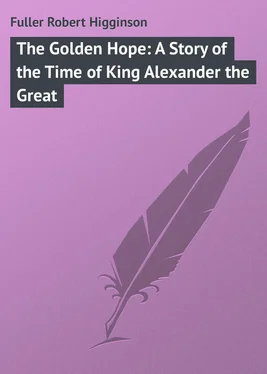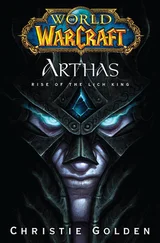Robert Fuller - The Golden Hope - A Story of the Time of King Alexander the Great
Здесь есть возможность читать онлайн «Robert Fuller - The Golden Hope - A Story of the Time of King Alexander the Great» — ознакомительный отрывок электронной книги совершенно бесплатно, а после прочтения отрывка купить полную версию. В некоторых случаях можно слушать аудио, скачать через торрент в формате fb2 и присутствует краткое содержание. Жанр: Прочие приключения, foreign_prose, на английском языке. Описание произведения, (предисловие) а так же отзывы посетителей доступны на портале библиотеки ЛибКат.
- Название:The Golden Hope: A Story of the Time of King Alexander the Great
- Автор:
- Жанр:
- Год:неизвестен
- ISBN:нет данных
- Рейтинг книги:4 / 5. Голосов: 1
-
Избранное:Добавить в избранное
- Отзывы:
-
Ваша оценка:
- 80
- 1
- 2
- 3
- 4
- 5
The Golden Hope: A Story of the Time of King Alexander the Great: краткое содержание, описание и аннотация
Предлагаем к чтению аннотацию, описание, краткое содержание или предисловие (зависит от того, что написал сам автор книги «The Golden Hope: A Story of the Time of King Alexander the Great»). Если вы не нашли необходимую информацию о книге — напишите в комментариях, мы постараемся отыскать её.
The Golden Hope: A Story of the Time of King Alexander the Great — читать онлайн ознакомительный отрывок
Ниже представлен текст книги, разбитый по страницам. Система сохранения места последней прочитанной страницы, позволяет с удобством читать онлайн бесплатно книгу «The Golden Hope: A Story of the Time of King Alexander the Great», без необходимости каждый раз заново искать на чём Вы остановились. Поставьте закладку, и сможете в любой момент перейти на страницу, на которой закончили чтение.
Интервал:
Закладка:
They did not enter the city that night, but turned aside to the house of Eresthenes, who had been a guest-friend of Clearchus' father. The old man was overjoyed to see them. After the evening meal he sought the priests of the temple and brought back word that the oracle might be consulted next day if the sacrifice proved propitious.
Clearchus slept soundly. In the morning he purified himself, according to the rule, in the clear, cold waters of the Castalian Font hung about with votive offerings in marble and bronze placed there by grateful pilgrims to the shrine. Eresthenes gave him fresh garments, with the garland of olive and the fillet of wool which suppliants were required to put on.
Guided by the old man, the two friends ascended the wide marble staircase that led to the great stone platform at the southeast corner of the lower terrace, where ceremonial processions were accustomed to form before entering the sacred enclosure. Passing through the gate, they advanced between treasure-houses upon which the most famous sculptors of the world had lavished their skill. Among these and the dwellings of the priests and the chief men of the place were set scores of columns and statues, the offerings of centuries from kings and princes. Across the lower terrace the way led them to the next higher, with a sharp turn to the right at the great stone sphinx which guarded the passage through the second wall. They continued up the slope to the final platform, on which the temple stood resplendent with color.
Entering between the great columns, Eresthenes and Leonidas left Clearchus to the care of the priests – grave men of advanced age who were under the direction of Agias. They led the Athenian to the apartment of the chief priest, a venerable minister whose age had passed one hundred years. He sat in his marble arm-chair, propped by cushions. His white beard flowed over his breast, and his thin hands lay crossed in his lap. He raised his dim eyes and fixed them upon the face of his visitor.
"What wilt thou, Thrasybulus, who comest back to me from beyond the tomb?" he asked in a quavering voice.
The attendant priests glanced at each other in surprise, but none of them dared to reply.
"Speak, Thrasybulus; I am an old man," the chief priest said.
"Thrasybulus has been dead these fifty years, Father," Agias said. "This is Clearchus, an Athenian, who comes as a suppliant to the oracle."
"He is like Thrasybulus!" the old man muttered, bowing his head. "It seems but yesterday that he stood before me." He paused for a moment and then continued with an effort: "Art thou pure of heart? Art thou free from the sins of the flesh?"
"I am," Clearchus replied firmly.
"Then pass into the presence of the God who knoweth all and who doth not forget!" said the patriarch, closing his eyes wearily.
Clearchus bowed and was about to turn away, when the old man roused himself once more.
"Come hither, boy, and let me look at thee!" he said. "My sight is growing dim."
Clearchus knelt at his feet, and the aged priest placed his hand on his head, stroking his hair and peering into his face.
"So like Thrasybulus! It was only yesterday!" he said to himself. "The storm comes and the world is changing. Thou shalt see thrones made empty and nations perish; but the God will remain until a greater cometh. Clearchus art thou called? It may be so; but to me thou art Thrasybulus. Go thy ways. The God will be kind to thee."
Although the other priests were evidently struck by this unusual scene, they made no comment, but led Clearchus into the dim interior of the temple. On every hand, between the columns and against the walls, gleamed statues and vessels of precious metals, exquisite in design and workmanship, that the Phocians had not dared to remove from the house itself of the God. Before them stood a group of young women in snowy robes with fillets in their hair. They were chanting a hymn of slow and solemn measure.
They ceased their chant as the priests entered with Clearchus, and two of them advanced, leading between them one of the three priestesses of the temple. The Pythia was a woman of middle age, slender of figure, with large gray eyes that seemed to look at Clearchus without seeing him. Her thin cheeks still retained the fresh color of youth, and her lips, of a deep red, moved gently as though she were whispering to herself.
Looking about him with eyes grown accustomed to the semidarkness, Clearchus saw a slightly raised platform of white marble toward the rear of the temple. Three shallow steps led to a broad slab, in the middle of which was a cleft. Through this orifice curled a pale, fleeting vapor, which rose like transparent smoke for the height of a man above the platform before it vanished. It came from the stone in puffs and spirals which swayed, now this way, now that, with a peculiarly irregular and capricious impulse like the balancing of a coiled serpent.
Over the cleft was set a low tripod, the legs of which were formed of intertwined snakes wrought in gold so cunningly that every scale seemed reproduced in the bright metal. The jewelled eyes of the reptiles twinkled through the vapor which alternately hid and revealed them.
Slowly and solemnly the priestesses led the Pythia to the foot of the platform, where they gave her hands to two of the most venerable of the priests, whose office it was to conduct her to the tripod. Her lips formed themselves into a smile as she mounted the steps and the women resumed their chanting.
As she took her place upon the tripod and the priests descended, leaving her alone, a sudden thunderstorm burst above the towering crags which overhung the shrine. The wind roared down between the Phædriades with mighty strength, and a crash of thunder, leaping and reverberating from rock to cliff, shook the temple to its foundations.
"Zeus is speaking to the son of Latona!" murmured Agias, and all bowed their heads in reverence.
Filled as he was with awe, Clearchus felt reassured by the calm demeanor of the priests. He fixed his eyes on the Pythia, who remained seated on the tripod with her hands loosely folded in her lap, oblivious alike to the storm and to her surroundings. The chill vapor seemed to grow more dense. At times it hid her entirely, wrapping her in its cold embrace. The color deepened in her cheeks and the smile left her parted lips. With dilated pupils she gazed over the heads of the little group before her. Gradually her face assumed a troubled expression and her tongue began to frame broken words and fragmentary sentences the purport of which Clearchus could not understand. Suddenly she half raised her hands as though she would cover her eyes and her face contracted as with a spasm of pain.
"Evohe! Phœbus!" she cried in a wailing voice.
"Ask thy question – the God is here!" Agias whispered, pushing Clearchus toward the platform.
The young man found himself standing alone in the dread Presence, gazing upon the Pythia, who was no longer a woman, but an instrument in the hands of the God. The vapor curled about her and encircled her in swiftly changing, fantastic forms. Her gray eyes looked out into his, fixed and steadfast, and the tension of the influence which possessed her convulsed her features. Dead silence reigned throughout the vast and shadowy interior of the temple.
Clearchus tried to frame the question that he had prepared but the words refused to come. The awe of his surroundings paralyzed his speech.
Suddenly the dear, wistful face of his love seemed to appear to him amid the folds of the rolling mist, filled with sorrow and yearning. His fear left him. All else, even life itself, was as nothing before the fierce desire of his heart.
"Where shall I find Artemisia?" he cried, stretching out his arms before the whirling cloud which hid the priestess in its embrace.
Читать дальшеИнтервал:
Закладка:
Похожие книги на «The Golden Hope: A Story of the Time of King Alexander the Great»
Представляем Вашему вниманию похожие книги на «The Golden Hope: A Story of the Time of King Alexander the Great» списком для выбора. Мы отобрали схожую по названию и смыслу литературу в надежде предоставить читателям больше вариантов отыскать новые, интересные, ещё непрочитанные произведения.
Обсуждение, отзывы о книге «The Golden Hope: A Story of the Time of King Alexander the Great» и просто собственные мнения читателей. Оставьте ваши комментарии, напишите, что Вы думаете о произведении, его смысле или главных героях. Укажите что конкретно понравилось, а что нет, и почему Вы так считаете.












